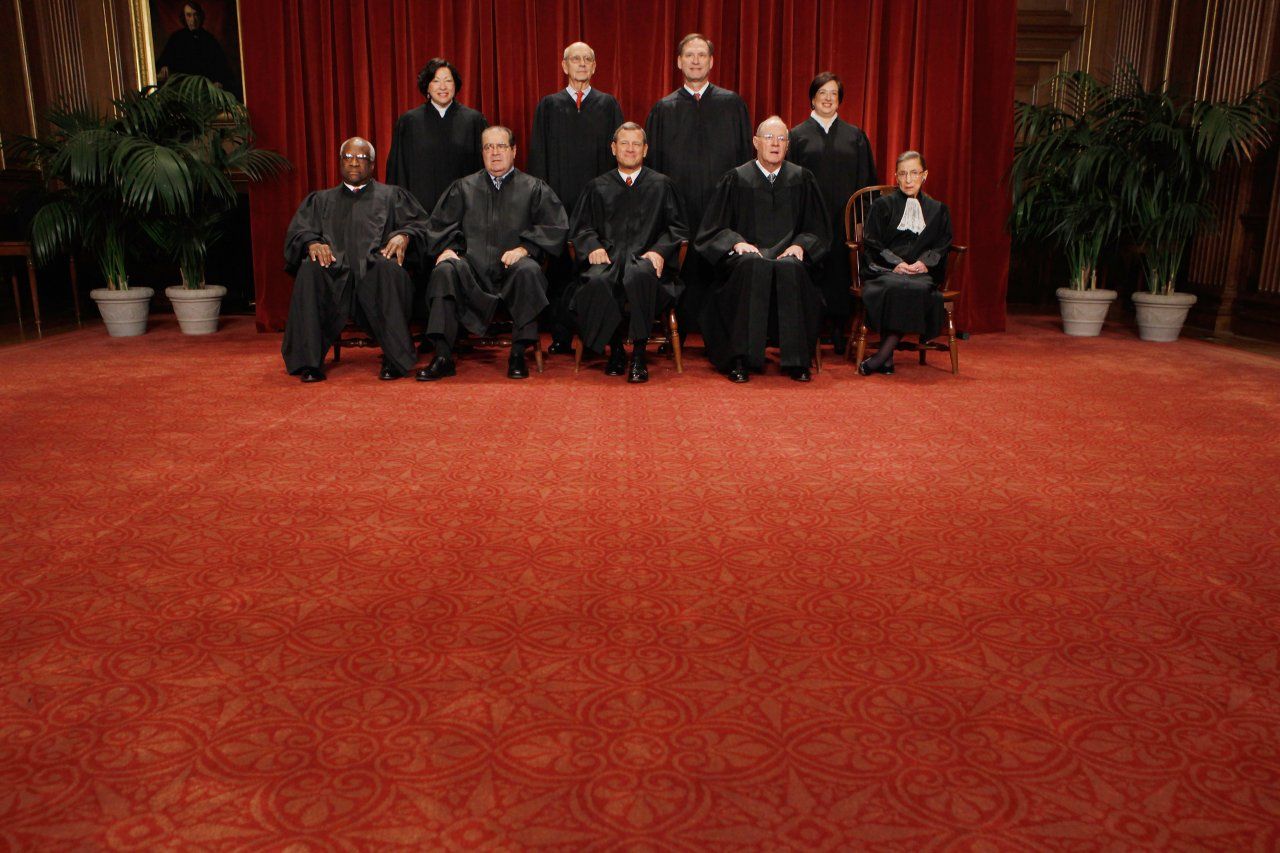
There are certain phrases in the English language that do not inspire much confidence—indeed, that send a shudder down the spine of any decent American. "NCAA to announce decision" is one such phrase. "Congress will act"—a perennial. "Octomom to start adopting." You get the picture.
"Supreme Court to hear campaign-finance case" may not smack you between the eyes the way my Octomom hypothetical did, but it ought to. The current court has blasted away at the fundaments of campaign-finance reform, and our elections are becoming multibillion-dollar Wild West shootouts. The 2012 federal elections cost a sickening $6.2 billion, and for the first time ever, we saw—thanks to the court's awful 2010 Citizens United decision—a small handful of megawealthy donors put $10 million or more into super PACs.
So when the Roberts Court agrees to hear another such case, it's the better part of wisdom to fear that the West is going to get even wilder. Imagine a future in which any really rich person decides he wants to elect a certain candidate to Congress, the Senate, even the White House—and in which said person can spend any amount he wants electing that candidate. Depending on how the court rules in a case it agreed to hear this week, that future may arrive at our doors soon.
The new case is McCutcheon v. Federal Election Commission. McCutcheon is a Republican businessman in Alabama, and he's miffed that he isn't allowed to give more campaign money than he already does. The current law is this: any citizen may contribute $2,500 per election to federal candidates and $30,800 per year to national party committees. But there's more—there are "aggregate" limits of $46,200 to candidates and $70,800 to committees every two years.
Why do these limits exist? Here we go back 37 years to Buckley v. Valeo, the seminal Supreme Court decision in this area. Even if you follow this stuff only casually, you probably know that candidates and parties can spend as much as they want; that "spending is speech," as it's sometimes said in the trade. That was from Buckley. But Buckley also upheld limits on how much any single individual could contribute to a candidate on the grounds that excessive contributions from one person could lead to "corruption or its appearance."
So the court that flung the doors wide open to corporate spending in Citizens United is now going to have a go at these individual limits. We have in essence three possible outcomes.
Outcome No. 1 is that the court upholds them. This seems pretty unlikely. If there were 5 votes to undo 100 years' worth of precedent in Citizens United, there are probably 5 votes to tinker with contribution limits, too.
So the two remaining options involve overturning them. The less dramatic of these would involve a ruling simply on the narrow question of these aggregate limits. On one level, it's not a crazy argument McCutcheon has. That is to say, under current law he's allowed to give $2,500 to 18 different candidates. If he can give that to 28, or even 208, well, it's still only $2,500 per candidate, and it's not as if he's going to own someone for $2,500. However, as campaign-finance expert Fred Wertheimer recently calculated on his blog, eliminating the aggregate limits would permit one person to write a $2.43 million check to a national party to be divvied up among candidates. That's a lot of candy from one sugar daddy.
Worse, the court could stick a dagger right in the heart of the Buckley framework and undo all contribution limits. Considering how far out of his way John Roberts went to get to the Citizens United decision (scheduling a second hearing of the case), it hardly seems crazy to think the court wants to go all the way.
So we're staring at the real possibility that, in a few years' time, a small group of multimillionaires could pool their money behind one presidential candidate and buy him or her the White House. Conservatives are the ones cheering for this outcome, so I pray that if it comes to this, the smallish group consists of George Soros and a few of his friends.
Uncommon Knowledge
Newsweek is committed to challenging conventional wisdom and finding connections in the search for common ground.
Newsweek is committed to challenging conventional wisdom and finding connections in the search for common ground.





